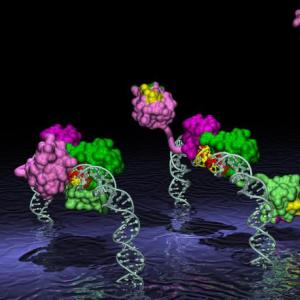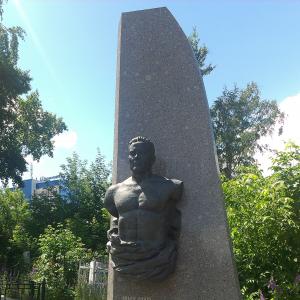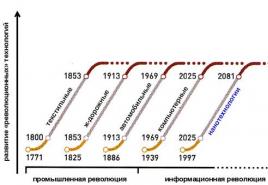List of normative legal acts regulating the activities of the socio-pedagogical and psychological services of an educational institution. List of normative documents of a social teacher Documents regulating the activities of a social teacher
A social teacher working at a school must be guided in his activities by the following documentation:
1.Texts of administrative documents on social and pedagogical work. Laws and by-laws on the implementation of the rights of the child;
2.Job description;
3. Long-term, calendar work plan for the year, month, week;
4. Cyclogram or work schedule for a week, month, approved by the head of the institution;
5. Schedule of thematic group consultations, schedule of individual consultations for certain groups of the population;
6. Projects or programs in some of the most relevant areas of social and pedagogical work;
7. Documentation: on recording offenses, developmental disabilities, conflicts in the team; on mastering individual educational routes by children under in-school supervision; to control the movement of students; actions and results of overcoming violations;
8. Documentation on issues of guardianship and trusteeship, registration at place of residence and employment, protection of children’s rights in the Ministry of Internal Affairs and judicial authorities;
9. Consideration of requests from parents, teachers, students and resolution of problems raised by them;
10. Data on the study of the social composition of families, the social portrait of a student, class, school, social expectations of parents, students, teachers as subjects of the educational process;
11. Taking into account measures for the social protection of children from socially disadvantaged families;
14. Systematized information on city and district services for parents and children about possible ways to solve their problems. 11
Conclusion
So, the social teacher identifies teenagers in need of social assistance. These are, first of all, underachieving teenagers who, due to their abilities, cannot master the school course. These are teenagers who experience stress either in a group of peers, at school, or in the family. These are teenagers with deviant behavior, many of whom have turned to drugs or alcohol. Most often, they are registered with the commission on juvenile affairs.
Sometimes helping such teenagers can only consist of understanding their relationships with others. In another case, teach them to control their actions and be confident in themselves. It is often necessary to explain to a teenager the legal and moral consequences of his behavior. But in both cases, sensitivity and cordiality are required from the social teacher.
The social teacher becomes the organizer of the student’s extracurricular time, uniting in his educational work with parents. He organizes various sections and clubs, school events.
A social teacher coordinates the work of the teaching staff with difficult teenagers, their families, the surrounding social microenvironment and the community of the neighborhood. He periodically informs the teaching staff of the school about the psychological climate in the classes, about each difficult student and about providing assistance to him. Plays a major role in preparing and drawing up the school's social work plan.
Special attention is required from the social teacher to adolescents expelled from school. He helps them get into another school and help them get used to the new team.
A social teacher identifies teenage schoolchildren who are illegally employed at work during school hours, resolves the issue of their studies, and checks whether the legal norms of child labor are being met.
He monitors whether all those in need attend rehabilitation centers; controls the receipt of all social privileges by large families: free “school” breakfasts, purchase of clothing, transportation costs.
A social educator studies the interests of children and adolescents, problems of family relationships with different structures. He studies the family, helps them in crisis situations, helps in improving the environment, improving the psychological and pedagogical culture of the environment, protects the interests of the teenager, and establishes contacts. Increasing the effectiveness of the work of a social teacher at school occurs due to the interaction of his work with the school psychologist, class teachers, and the deputy director for educational work.
Help from “higher” social services is also important. Operational efficiency increases through the exchange of work experience. Therefore, it would not be superfluous to hold united meetings at least once every six months of all social teachers of the city’s schools. If the exchange of experience between social educators of one city is important, then the exchange of experience in this direction between countries is invaluable.
In conclusion, it should be said that, unfortunately, today there are schools that do not yet have social educators. It is good if his functions are partially performed by the deputy director for educational work or some class teachers. For example, they can visit the families of students, they can keep records of disadvantaged families for themselves, hold meetings and conversations with such families, but they do not have the right to provide official social assistance to students. Social educators have such rights. Therefore, their presence at school is irreplaceable. But since this profession is relatively young, there is hope that schools that do not yet have social educators will not have to wait long; I would like to believe that this profession will be in great demand. And future school social educators need to know that they are expected and needed.
“Comprehensive boarding school of secondary (complete) general education No. 3”
DOCUMENTATION OF THE SOCIAL TEACHER
List of mandatory documentation for a social teacher.
Basic legal documents regulating the professional activities of a social teacher.
Job descriptions.
Functional responsibilities for the academic year, approved by the director of the boarding school.
Long-term work plan for the academic year (Form 1).
Work plan of the social teacher for the month (Form 2).
Prevention Council Plan.
Plan for joint activities of the boarding school and the juvenile affairs unit of the Ministry of Internal Affairs of Astrakhan.
Plan of joint activities with an educational psychologist.
Work schedule approved by the director of the boarding school.
Work log (Form 3).
Group Work Journal. Social and pedagogical prevention on problems and areas with RPS.
Journal of incoming and outgoing documentation.
Cards of individual socio-psychological support for pupils registered with the PDN of the Ministry of Internal Affairs of Astrakhan (Form 4).
Social teacher data bank
Pupils registered with the PDN of the Ministry of Internal Affairs of Astrakhan (form 5.1),
Pupils who are registered with the school (Form 5.2)
Dysfunctional families registered with the PDN of the Ministry of Internal Affairs (Form 5.3),
Dysfunctional families registered with the school (Form 5.4)
Large families (form 5.5),
List of “at-risk” families (Form 5.6),
List of pupils at risk,
List of pupils in a socially dangerous situation
List of pupils under guardianship (with the obligatory attachment of inspection reports of housing and living conditions twice a year - October-April) (Form 5.7) Acts of housing and communal services (Form 11).
List of pupils from families of refugees and migrants (form 5.8);
The report of the social teacher for the academic year is analytical and statistical.
Social passport of the boarding school (Form 6).
Social class passports (Form 7).
Card file of difficult pupils (individual card).
Quarterly analytical reports.
The social teacher’s office should have the following materials:rials:
1. Texts of administrative documents on social and pedagogical work, laws and regulations on the implementation of the rights of the child;
4. Reference information for parents and pupils about regional services of psychological-pedagogical, medical-social, legal assistance, institutions of additional education, sports and recreational institutions.
Form 1.
PERSPECTIVE PLAN
work of a social teacher
1. The long-term plan contains:
tasks for the new academic year (within the framework of the goals set by the educational institution);
| 1. Diagnostic and expert work |
|||||||||
| № p/p | Nametypes of work events | DeadlinescheckDenia | Contingent(for whom it is held) | Together with whom to be held | Completion mark |
||||
| 2. Educational and organizational and methodological work |
|||||||||
| 3. Preventative work |
|||||||||
| 4. Advisory and correctional and developmental work |
|||||||||
Compiled in the following areas (sections):
Diagnostic and expert work,
Educational and organizational-methodological work,
Preventative work,
Advisory and correctional development work,
3. This plan is an integral part of the school-wide educational plan, signed by each correctional service specialist, teacher and approved by the director of the boarding school.
Approximate content of the directions of the long-term plan:
Diagnostic and expert work
Group and individual studies of pupils, teachers, and parents are reflected (including the study of the housing and material conditions of the pupil’s life, determination of the causes of trouble). It is necessary that other areas of the plan reflect the further use of diagnostic results. This may include consultations with teachers, parents, and students; preparation of documents for submission to the PDN and other interested authorities; individual and group lessons, seminars, speeches at teacher councils, parent meetings, etc.
Expert work includes lesson analysis, participation in councils, commissions, administrative meetings to make any decisions that require a socio-psychological solution to the situation, as well as representing the interests of students in guardianship authorities, courts and other organizations, as well as other types of work.
Educational andorganizational and methodological work
Class hours, lectures, seminars, speeches at methodological associations, teacher councils, parent meetings, preparation of printed materials (booklets, stands, etc.) are reflected. Organizational and methodological work includes work on advanced training, development of programs for correctional, developmental and preventive work, participation in scientific and practical seminars, conferences, meetings and methodological associations, maintaining documentation, planning, reporting, etc.
Preventative work
Measures are indicated to identify pupils at risk, including maintaining lists according to the established template. Support for “at-risk” pupils is reflected (maintaining a card of individual socio-psychological support, conversations and consultations with pupils, working with families, preparing documents, etc., tracking attendance, visiting pupils at home, etc.), participation in the work of the Prevention Council, organizing raids in the neighborhood. Organization and conduct of group classes and extracurricular activities, promotions, competitions, thematic weeks on the primary prevention of negative addictions, crimes, organization of socially active activities of students, volunteer movement. Carrying out joint work with the PDN, medical services, interaction with teachers - psychologists, teenage clubs, institutions of additional education, etc. to provide assistance, both within the boarding school and beyond the professional competence of the boarding school specialists and other types of work.
Advisory andcorrectional and developmental work
This direction reflects group and individual correctional and developmental work; consultations with teachers, parents, students, administration; providing advisory assistance to teachers in preparing and conducting various types of events for students and parents and other types of work.
Form 2.
PLAN
work of a social teacher
on____________ month.
1. The monthly work plan is drawn up in accordance with the long-term plan, taking into account the planning of joint work with other Services (a joint plan with the PDN, the Prevention Council, with an educational psychologist, medical services, organizations outside the boarding school).
2. A monthly work plan can be drawn up without identifying areas (sections);
3. The work plan for the month can be drawn up in the form of a weekly grid plan;
4. The plan is signed by the social teacher.
5. At the end of the plan based on the results of the month, unplanned additional activities carried out are indicated.
6. The plan must be approved by the director of the boarding school in order to coordinate the time and place of planned events outside the boarding school.
Form 3
JOURNAL OF WORK
Note:
A notebook, etc. can serve as a logbook, but the document must be filled out according to this form (Form 3) and electronically every quarter.
The column “Types of work performed” is filled in in any form. A brief informative record is given about the work carried out: conversations, consultations and other activities, indicating the name, class of the student, parents (legal representatives), and the topic of the activities carried out;
The “Note” column was introduced for the convenience of recording work with parents and students. If the work is carried out with a pupil, a conditional mark is made in the “pupil” column, if the work is carried out with a family - in the “family” column, etc.
The log is filled out daily. The social teacher’s work plan for the month is considered completed only if the planned activities are completed and their implementation is noted in the Journal;
Control over the maintenance of the Journal is assigned to the head teacher who supervises educational work.
Form 4.
MAP
individual socio-psychological support
pupil
Class
Surname
Date, month, year of birth
Home address, telephone
Date of registration
Reason for registration with the PDN, VShU
Full name class teacher
Full name psychologist
Full name social teacher
Living conditions of the child, indicating the financial situation of the family
__________________________________________________________________________________________________________________________________________________________
Family composition (indicating the full name of the parents, their age, place of work, work phone number; other family members living in the apartment)
________________________________________________________________________________________________________________________________________________

Documents regulating the activities of a social teacher.
Order of the Ministry of Health and Social Development of the Russian Federation No. 761 n dated August 26, 2010 “On approval of a unified qualification reference book for positions of managers, specialists and employees, section “Qualification characteristics of positions of educators”;
Methodological letter of the Ministry of Education of the Russian Federation No. 61/20-11 dated February 27, 1995 “On social and pedagogical work with children”

International:
UN Convention on the Rights of the Child;
Universal Declaration of Human Rights.
Federal:
Federal Law No. 120-FZ of June 24, 1999 “On the fundamentals of the system for the prevention of neglect and juvenile delinquency”;
Federal Law No. 124-FZ of July 24, 1998 “On the basic guarantees of the rights of the child in the Russian Federation”;
Code of the Russian Federation No. 195-FZ of December 30, 2001 “On Administrative Offences”;
Criminal Code of the Russian Federation No. 63-FZ of June 13, 1996;
Family Code of the Russian Federation No. 223-FZ dated December 29, 1995;
Order of the Ministry of Internal Affairs No. 569 of May 26, 2000 “On approval of instructions for organizing the work of departments for juvenile affairs of internal affairs bodies”

Regulatory documents
Regional:
Moscow Law No. 12 of April 13, 2005 “On organizing the activities of commissions for minors and protecting their rights”;
Moscow Law No. 14 of March 10, 2004 “On general education in the city of Moscow”;
Decree of the Moscow Government No. 429-PP dated June 14, 2005 “On approval of the regulations on commissions for compliance with guarantees of the rights of minors to receive general education”;
Decree of the Moscow Government No. 973-PP dated December 6, 2005 “On approval of the regulations on organizing the registration of children”;
Order of the Department of Education of the City of Moscow No. 265 of May 23, 2005 “On additional measures to improve the educational and preventive work of educational institutions of the Department of Education of the City of Moscow to prevent neglect and delinquency of students”

Regulatory documents
Regional
Instruction “On the organization and procedure for maintaining records of students and families in a socially dangerous situation in state educational institutions” - Order of the Moscow Department of Education No. 51 dated 02/07/2006;
Instruction “On the procedure for maintaining records of minors who do not attend or systematically miss classes in educational institutions for unexcused reasons” - Order of the Moscow Department of Education No. 579 of February 27, 2007.

Regulatory documents
Local:
Instructions, letters from the District Education Department;
Departmental programs;
Charter and local acts of an educational institution

Minutes No. 01-11 of 09/21/2011 of the meeting of the Moscow City Interdepartmental Commission on the Affairs of Minors and the Protection of Their Rights;
Decree of the President of the Russian Federation No. 761 of June 1, 2012 “On the national strategy in the interests of children for 2012-2017”

1.Texts of administrative documents on social and pedagogical work, laws and regulations on the implementation of children’s rights;
2. Job description and functional responsibilities (all areas of work are described in detail);
3. Monthly cyclogram;
4. Weekly work schedule (36 working hours + 30 minutes lunch);
5. Journal of work performed (daily by time);
6. Plan of preventive work of the educational institution for the academic year (in accordance with the directions);
7. Long-term work plan for the social teacher for the academic year (in accordance with the directions);
8. Social passports of all classes, social passport of the educational institution;
on the website omc.mosuzedu.ru



10. Information stand on city and (or) district services for parents and children (indicating the addresses and telephone numbers of district KDNiZP, PDN OVD, guardianship authorities, “helplines” and “hotlines”;
11. Joint work plan of the Department of Internal Affairs of the Department of Internal Affairs and the administration of the educational institution; frequency of visits to the institution by the juvenile affairs inspector;
on the website omc.mosuzedu.ru

12. Interaction with the KDNiZP, participation of representatives in school-wide events.
13. Availability of information (card file and individual folders) on children and families registered in the internal school register (HSU), in the CDNiZP, in the PDN of the Department of Internal Affairs;
14. Documentation on issues of guardianship and trusteeship (detailed lists with personal file numbers, dates of deprivation of parental rights and appointment of guardianship, addresses, telephone numbers, place of work; inspection reports of living conditions), protection of the rights of the child in law enforcement agencies and judicial authorities;
15. Organization of individual support for children at risk - use of the “Regulations for working with children at risk”;
on the website omc.mosuzedu.ru

Regulations for the work of the socio-psychological service of educational institutions with children at risk
Stage 1: diagnostic.
The goal is to determine the current psychological state of the child in accordance with the age norm and individual developmental characteristics that determine behavioral deviations. Identification of the child’s personal resources and resources of the social environment that are possible to overcome the identified problems. A study is being conducted of the cognitive, emotional and personal sphere, family situation of development, and sociometry.

Stage 2. Development of an individual educational route.
The goal is to develop socially approved behavior and increase educational motivation.
- in the psychological and pedagogical block;
- social and pedagogical block;
- in the additional education block;
- in the classroom management block.

3 .
3 Stage. Working with the teaching staff.
The goal is to change the predominance of administrative-punitive methods of education over restorative ones. Changing the work format of the Prevention Council.
Stage 4 Reporting and analytical.
The goal is to evaluate the effectiveness of the work performed. Interim and final diagnostics of “problem areas” and correction of work methods and technology are carried out.

A method for structured assessment of the risks of re-offending and the possibilities for rehabilitation of a minor
“Assessment of Risks and Opportunities” (O RV), developed by specialists from the Russian Charitable Foundation NAS (“No to Alcoholism and Drug Addiction”), the Kvartal children’s and adolescent rehabilitation complex

Using ODS technology, the following are diagnosed:
family situation
situation in an educational institution
relationships with peers
use of surfactants
leisure organization
personal characteristics of the child
social attitudes

16. Availability of information on the introduction of the service of the Commissioner for the Protection of the Rights of Participants in the Educational Process (Ombudsman);
17. Availability of information on the organization of the work of the “School Reconciliation Service”;
18. Analysis of the work of a social teacher for three academic years;
19. Portfolio (electronic).
on the website omc.mosuzedu.ru

“Restorative approach to conflict resolution at school” on the basis of MSUPE –
code: PPP – 23;
“Educational work of an educational institution to develop tolerance among students” on the basis of Moscow State Pedagogical University – code: VR – 35;
-
SAMPLE LIST
documentation of a social teacher of an educational institution
Regulatory documents:
1. Job description certified by the head of the institution
2 Working hours of a social teacher, certified by the head of the institution
3. Laws of the Russian Federation necessary in the work of a social teacher
4. Resolutions, instructions, orders of higher organizations regulating and determining the content of the activities of the socio-psychological service
5.Orders of the director of an educational institution regulating the work of the socio-psychological service (orders “On the creation and work of the school Prevention Council”, “On conducting joint raids”, etc.)
6. It is necessary to have information about the problem, goals and objectives of the school for the academic year. Based on this, formulate the problem, goals and objectives of the socio-psychological service, determine the main forms and methods of work for their implementation.
Work planning:
1. Analysis of work for the previous 3 academic years (analytical and statistical)
2. Work plans of the social teacher for the academic year and summer period, which includes joint work with the school administration, psychologist, class teachers, medical worker, parent committee, etc.)
3. Plans for joint work of the school social teacher with institutions of the prevention system (KDN, PDN inspectors, district inspector, etc.)
4. Work plan for a month, week
5. Weekly work schedule.
Main activity materials:
1. Social passport of the school for the previous 3 years
2. Lists of students by category: from large families from low-income families from disadvantaged families disabled children looked after children placed on free meals by category registered at school registered in the PDN prone to unauthorized leaving home, vagrancy All lists must be formed with the maximum complete information
3. Card of individual study, teenagers registered at school and PDN
4. Lists of disadvantaged, low-income, large families
5. Rehabilitation programs for every dysfunctional family.
6. Protocols of prevention councils. The minutes of the Council of Prevention must be drawn up in accordance with the requirements for the execution of minutes, i.e. indicating the serial number of the meeting, the composition of the sitting persons invited to the Council, the agenda of the meeting is indicated, which should begin with an analysis of the implementation of previously made decisions. When considering the personal files of students, it is indicated which of the parents or their substitutes was invited, what decision was made, and who is responsible for implementing the decision of the Prevention Council and the deadline for implementing this decision.
7. A journal for recording the raids carried out with full information (the date of the raid, the composition of the raid participants, a list of families who planned to visit with a note on the results of the visit (were it possible to visit the parents or their substitutes or not). All information is noted in the students’ personal cards: who was at home, what work was done (conversation, warning or protocol drawn up, has the situation changed with the student, in the family, etc.)
8. Information about crimes committed and offenses committed by students. Statistical report: digital data from the police department on the number of crime cases, date of commission of the crime, offense, whether he committed a crime or offense for the first time or repeatedly, whether he was registered at school or in the PDN at the time of the commission of the crime or offense, family category, what the student does during extracurricular hours .
9. Materials on summer employment of students in need of social assistance (children from low-income families and disadvantaged families, disabled children, children under guardianship), “at-risk” students.
10. Materials of speeches at pedagogical meetings, seminars, parent meetings, class hours, etc.
12. Taking into account requests from parents, teachers, students and resolving the problems raised by them. A log of consultations, indicating the topic of the consultation and for whom it was conducted.
13. Lesson attendance log, their analysis.
15. Projects or programs in some of the most relevant areas of social and pedagogical work
16. Methodological materials for class teachers, parents, teachers on solving problems in the child’s social life and resolving conflicts in interpersonal relationships.
Regulatory framework (regulatory and advisory documents of the world community, state, regional, intra-school documents ) - Appendix 1
Planning the work of a social teacher, reporting and analytical documentation:
analytical report of the work of a social teacher for the previous academic year, approved by the head of the educational institution - Appendix 2
work plan for a social teacher for the year;
social teacher work plan for the month;
social teacher work plan (grid) for the week;
joint work plan between the school and the IDN for the academic year - Appendix 3
work schedule indicating the time of individual consultations;
cyclogram of the work of a social teacher for a week - Appendix 4
consultation log (for students, parents, teachers);
journal of group lessons (with students, parents, teachers);
log of individual lessons with students;
register of crimes and offenses among students;
log of visits and preventive work of the IDN inspector;
log of visits to families at their place of residence – Appendix 5
socio-pedagogical class passports - Appendix 6
socio-pedagogical passport of the educational institution – Appendix 7
socio-pedagogical passport of the microdistrict - Appendix 8
personalized data banks of children and families of various accounting categories ( families problematic, in a socially dangerous situation, low-income, single-parent, large families, guardianship (foster care), raising disabled children, students who are on various types of preventive accounting, “risk groups”) - Appendix 9
individual preventive cards for students who are registered with the school, registered with the IDN, KDN, drug dispensary (attached to them are inspection reports of living conditions, characteristics (Appendix 12), other materials) - Appendix 10
programs of individual correctional work with students – Appendix 11
plans and agreements for the social rehabilitation of families in a socially dangerous situation - Appendix 15
social passports of families in a socially dangerous situation – Appendix 16
individual plans for the protection of the rights and legitimate interests of minors, interdepartmental individual plans for the protection of the rights and legitimate interests of minors (Methodological recommendations “Organization of the work of an educational institution to protect the rights and legitimate interests of minors”).
acts of inspection of housing and living conditions – Appendix 17, 18
documentation of the Prevention Council: analysis of the work of the Prevention Council for the past academic year, work plan of the Prevention Council for the current academic year, minutes of meetings of the Prevention Council - Appendix 20
self-education folder (portfolio) – Appendix 21
group and individual training programs;
social and pedagogical projects.
Appendix 13: Categories families in need of socio-psychological support.
Appendix 14: Algorithm for school work with families in a socially dangerous situation.
Appendix 19: Regulations on the Prevention Council.
Appendix 22: Rights and ethical standards of a social teacher.
Appendix 24: Documents required to place a child in a children's social shelter.
Related articles







